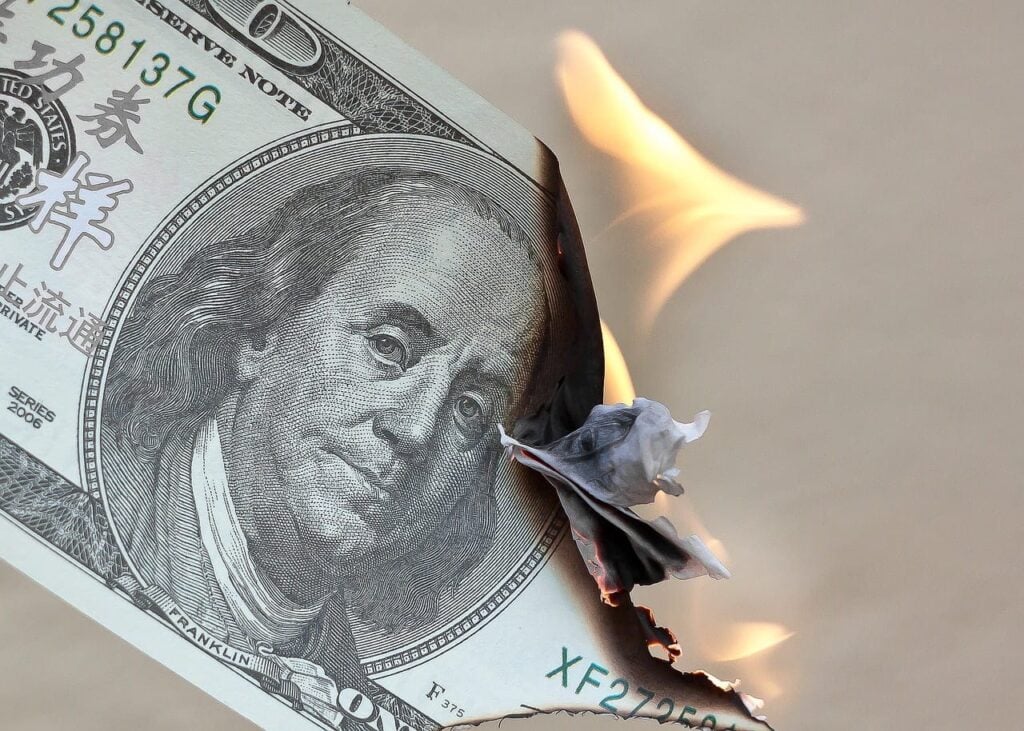The opening of a safeguard or receivership procedure places the company in a delicate situation, marked by the need to continue its business while dealing with its financial difficulties. The observation period, a genuine diagnostic and restructuring phase, raises a fundamental question for the company's survival: what happens to the contracts that are essential to its operation? Suppliers, landlords, customers, employees... contractual relationships are at the heart of economic activity. The law governing companies in difficulty introduces a specific regime that derogates from ordinary contract law, designed to preserve the chances of recovery by allowing the necessary contractual flows to continue. Understanding these rules is essential for both debtors and their commercial partners.
The principle: continuation of current contracts required by the administrator
As the primary objective of the observation period is to enable the business to continue, the legislator has established the principle of the continuation of current contracts. This mechanism, governed by article L.622-13 of the French Commercial Code, derogates from the usual rules that could allow a co-contractor to suspend or terminate a contract if its partner defaults.
Which contracts are affected?
The concept of a "current contract" is decisive. These are contracts entered into before the judgment opening the collective proceedings and whose performance has not been completed at that date.. This typically applies to contracts with successive performance (lease, supply, maintenance, licence, work, etc.) but also to contracts with instantaneous performance where not all the services have yet been provided by the two parties on the day of the judgment. For example, a sale for which the price has not yet been paid and the goods not yet delivered is a contract in progress. On the other hand, if one of the parties has fully performed its principal obligation before the judgment (delivery made but price not paid), the contract is no longer considered to be "in progress" within the meaning of this regime; the other party's claim will then come under the heading of prior liabilities subject to declaration.
The administrator's (or debtor's) exclusive power to require continuation
The decision whether or not to continue a current contract does not rest with the other party to the contract with the company in difficulty. It is the exclusive prerogative of the court-appointed administrator, where one has been appointed, or of the debtor himself with the assistance of the court-appointed agent in the absence of an administrator (this is often the case in safeguard proceedings or in smaller structures). The power of the director is therefore central to this system. It will exercise this option according to the needs of the company and the prospects for recovery. The aim is to maintain only those contracts deemed useful or essential to the continuation of the business during the observation period and, potentially, under a future safeguard or recovery plan. Contracts that are superfluous or too costly can therefore be excluded.
The co-contractor's obligation to fulfil its commitments despite a previous default in payment
This is one of the most exceptional aspects of the system: the co-contractor whose contract is being pursued must fulfil its contractual obligations (deliver the goods, provide the service, allow use of the premises, etc.) even if the company in difficulty has not honoured the payments due. before the opening judgment. These prior unpaid amounts constitute a claim that the other party must declare as a liability in the insolvency proceedings (see our article on declaring a claim). The other party cannot therefore invoke the exception of non-performance for sums due prior to the judgment to refuse to continue the contract if the administrator (or the debtor) requires it to be continued. This rule is designed to prevent the company from being paralysed by its partners' refusal to continue working with it because of old debts.
Conditions for the continuation of contracts
The continuation of a current contract is not, however, without trade-offs for the company in difficulty. It is subject to compliance with strict conditions designed to protect the interests of the co-contractor for the period after the opening judgment.
Provision of the service promised to the debtor
This condition is self-evident: if the administrator requires the contract to continue, it is so that the company can benefit from the agreed service. The co-contractor must therefore provide the agreed service (goods, services, provision of an asset, etc.) in accordance with the terms of the contract, for the entire period following the opening of the insolvency proceedings. As mentioned above, this obligation cannot be avoided on the grounds of non-payment prior to the judgment.
Payment of instalments after the opening judgment
This is the essential consideration required of the company in difficulty. If it benefits from the continuation of the contract, it must imperatively pay the instalments due for the period posterior at the time of the opening of the accounts, in accordance with the terms and conditions set out in the contract. These payments are considered to be "useful" claims for the proceedings and benefit from preferential treatment: in principle, they must be paid when due. Failure to comply with this obligation can have serious consequences, including termination of the contract. It is therefore vital for the company to ensure that it has sufficient cash to honour these payments if it wishes to retain the benefit of essential contracts.
Supervision by the official receiver
The official receiver, the key body in the insolvency proceedings, ensures that the proceedings run smoothly and that the interests involved are protected. Although the administrator (or the debtor) has the option of continuing the contracts, the official receiver may be called upon in the event of a dispute or difficulty. The juge-commissaire may, for example, authorise the administrator to pay previous debts in order to obtain the lifting of a retention of title clause or a right of retention by a co-contractor, if this is essential to the continuation of the business. His intervention ensures a balance between the needs of the business and the rights of creditors.
Termination of current contracts
While the principle is continuity, the scheme also provides for several mechanisms for terminating current contracts, either on the initiative of the bodies involved in the procedure, or automatically if the company defaults.
Termination at the initiative of the administrator (or debtor)
An administrator (or authorised debtor) who considers that a contract is no longer useful for the continuation of the business or that it is placing too heavy a burden on the company's finances may decide not to continue it. The decision not to opt for continuation, or even to terminate a contract that was initially continued, must be notified to the other party. Such termination entitles the other party to damages, the amount of which must be declared as a liability.. The indemnity is deemed to cover the loss suffered as a result of the early termination. The decision to terminate is a strategic one and must be carefully considered as part of the overall restructuring of the company.
Termination by operation of law for non-payment of subsequent instalments
This is the penalty for a company's failure to comply with its fundamental obligation: to pay for services provided after the opening judgment. If the company fails to pay a due date for a service provided after the judgment, the contract is automatically terminated.. The other party simply acknowledges this termination, without needing to refer the matter to a judge. This rule, which protects the other party to the contract, highlights the importance for a company in difficulty of having sufficient cash to cover the ongoing costs of the contracts being pursued. Poor cash management during the observation period can result in the loss of vital contracts.
The co-contractor cannot use the opening of proceedings to terminate the contract
The French Commercial Code is very clear on this point: any contractual clause providing for termination of a contract solely as a result of the opening of insolvency or receivership proceedings against one of the parties is deemed to be unwritten (article L.622-13, I). Similarly, the co-contractor may not invoke non-payment of sums due before the opening of proceedings to justify termination or refusal to perform obligations. The aim is to prevent the opening of proceedings from causing a chain reaction in contractual relations, which would destroy the chances of recovery. The fate of the contract depends solely on the decision of the administrator (or the debtor) and the company's compliance with its obligations after the judgment.
The specific case of the administrator's failure to respond to a formal notice
When faced with uncertainty about the fate of a contract, the other party has a way of obtaining clarification. They can send a formal notice to the court-appointed administrator (or to the debtor if there is no administrator) to take a decision on the continuation of the contract.. If the administrator fails to respond within one month (unless the juge-commissaire grants an extension, which may not exceed two months), the contract is terminated ipso jure. This mechanism means that the contracting party does not have to wait indefinitely, and can quickly find out what will happen to its contractual relationship with the company in difficulty.
Special cases of contracts
Some contracts are subject to specific rules or raise particular issues during the observation period.
The fate of the commercial lease
The specific situation of the commercial lessor in receivership deserves special attention. The lease of business premises is often an essential contract. The general regime of continuation applies. The administrator may require that the lease be continued, provided that the rent and charges incurred after the judgment are paid. If the administrator decides to terminate the lease, the termination takes effect on the date of the administrator's request for termination. The lessor may not invoke non-payment of rent prior to the judgment to obtain termination. In the event of non-payment of subsequent rent, the lessor may apply for termination or have it declared. The management of the lease is a critical point that often requires the assistance of a specialist. legal advice adapted.
Employment contracts
Employment contracts are ongoing contracts by their very nature. They continue automatically after the opening judgment, without the administrator having to exercise a formal option. However, dismissals for economic reasons may take place during the observation period, but in accordance with a specific procedure and under the supervision of the official receiver (article L.622-17). This system is complex and will be dealt with in a separate section.
Loan agreements and bank overdrafts
(Amortising) loan contracts raise questions. If the loan has been fully disbursed prior to the judgment, it is generally no longer considered to be a current contract that can be continued by compulsory execution. The bank will have to declare its claim for the outstanding capital. Subsequent instalments are no longer immediately due as a result of the cessation of individual legal proceedings. The situation is debated with regard to credit facilities or overdrafts confirmed prior to the judgment, but the tendency is to consider that the bank cannot be forced to maintain its credit facility if it no longer has an interest in doing so, provided that it does not commit an abusive breach.
Contracts intuitu personae
These contracts, concluded in consideration of the very person of the co-contractor (mandate, artist's contract, etc.), pose a theoretical difficulty. Can we force the continuation of a contract where trust or personal qualities are decisive? The law does not provide an explicit exception. However, the administrator will have to take this special nature into account. If continuation proves impossible or inappropriate because of this intuitu personaeIn this case, termination will probably be preferred, potentially without compensation if the termination is justified by the disappearance of the essential personal element.
The consequences of continuation or termination
The decision to continue or terminate a contract has significant consequences for all parties involved.
For the debtor and the procedure
The continuation of essential contracts enables the company to maintain its production facilities, supplies, premises and markets, a sine qua non for considering a recovery plan. It does, however, generate new costs (post-judgement payments) that must be borne by the company's cash flow. Although termination reduces costs, it may deprive the company of the resources it needs to carry on its business or lead to the payment of compensation that will increase its liabilities. The strategy adopted with regard to current contracts is therefore a decisive factor in the outcome of the procedure, whether it is a safeguard, a reorganisation or even a sale. The observation period and the issues involved are described in detail in our full guide.
For the co-contractor (declaration of claim, indemnities, etc.)
If the contract is continued, the co-contractor is guaranteed payment for services provided after the judgment (unless the company defaults, leading to automatic termination). For sums due before the judgment, he becomes a creditor in the proceedings and must declare his claim if he hopes to be paid under the plan or the liquidation. If the contract is terminated at the initiative of the administrator (or the debtor, or following unanswered formal notice), the other party is entitled to damages. The amount of this compensation must also be the subject of a statement of claim. Termination by operation of law for non-payment of subsequent instalments does not, in principle, entitle the other party to compensation, but it must declare its claim for services provided and unpaid after the judgment.
Managing current contracts is a major and complex issue during the observation period. It requires a detailed analysis of the company's situation and the legal and financial implications of each decision. To ensure the security of your contractual relations, whether you are the debtor or the co-contractor, it is advisable to call on the services of an insolvency representative. lawyer specialising in insolvency proceedings is often essential. Our firm offers you in-depth legal expertise on the management of ongoing contracts during the observation period. Contact us to discuss your situation.
Sources
- Commercial Code, in particular articles L.622-13, L.622-17, L.641-11-1 (similar regime in liquidation with provisional continuation of business).




